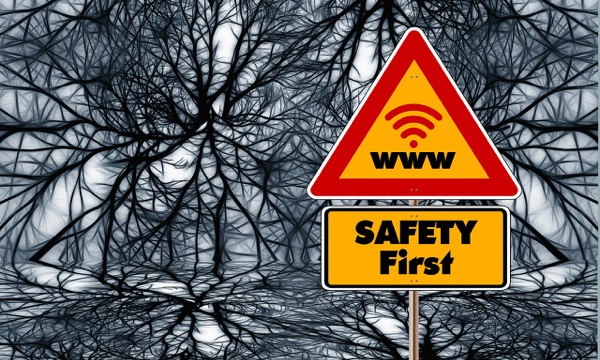Future proofing your SEO: How to make sure you don’t get penalised by a future Google update
With Google’s algorithm constantly changing, your website could be in jeopardy of getting seeing your rankings drop even if you aren’t proactive in protecting your site. So instead of running scared, wondering if your site, and business, will be slammed like so many others in the past, we’ll explain how you can protect your site against a algorithm changes so your traffic won’t plummet overnight and you can continue to run a successful business online.
Google updates that might affect your site
Google is becoming better at detecting spam and they’re doing everything in their power to remove it from their search results. Even though your intention may not be to trick your way to the top of the results page, you may still be doing some things that Google considers to be spammy.
In the past, Google’s biggest weapon against these manipulative techniques was the use of manual penalties.
These days though, it’s also using algorithm changes to try and ensure sites that use poor practices don’t rank well in its search results.
Here are the most important updates that have affected lots of sites in the past:
1) With Panda the purpose was to try to show high-quality sites higher in search results and, at the same time, to demote sites with low quality and duplicate content. In other words, it works as a filter that’s supposed to prevent low quality sites from ranking. The first iteration of the Panda algorithm affected 12% of search results and the sites affected were hit quite hard. Find out more about Google Panda.
2) Google Penguin was released to uncover spammy backlink profiles and to punish sites that were violating Google’s quality guidelines. This includes spammy practices like excessive link exchange, and low quality backlinks often generated using automated software. When it was first released, on April 24th 2012, it affected 3.1% of searches. Penguin is now “real-time”, which means it can affect a website without Google having to release an update to Penguin. It is also “granular” which means Learn more about Google Penguin.
3) Hummingbird was also an important update as it was Google’s solution to encourage site owners to write more for individuals and less for search engines. The purpose was to get content marketers to focus on writing purposeful content that answers questions and provides value to their audience. Sites that failed to do this are now less likely to rank well Read more about the Hummingbird update.
4) Mobilegeddon refers to Google’s attempts to make the web more mobile friendly. Put simply, if you don’t have a website that’s mobile friendly, then you’re less likely to rank well in mobile search results. Ultimately, it may even be that not having a mobile friendly website is a negative factor for all search results. Read this to learn more about Google’s efforts to make the web mobile friendly.
Each of these Google updates affected a huge variety of sites of all sizes and from all industries. If you want to make sure your site doesn’t get hit by a future update from Google, read our top tips below.
How to prevent your site from getting hit by a future update
There are a few important things you need to consider to ensure your site stays on the safe side and won’t get hit, regardless of the updates that Google is planning to release in the future. These include: relevant backlinks, great content, a technically healthy website and a genuine and engaging social presence.
Let’s discuss each in detail so you get a better understanding of what you should and shouldn’t do to not only prevent your site from being hit by a future Google update but also to ensure you’re helping your site and your online business to grow using healthy and effective SEO methods.
1. Backlinks
Backlinks are one of the building blocks of good SEO. If your site has a fair number of quality inbound links coming from high quality and relevant sites, the chances of your site performing well in search engine result pages increase. Think of it this way: Google will give your site more value if the links you’ve built come from quality sites. On the other hand, if you have incoming links from sites that are spammy or irrelevant, your site’s existing ranking might be negatively affected.
While there have been many controversies as to whether backlinks are losing their importance after Google’s Penguin update, one thing is certain: it’s not the quantity of backlinks that matters but the quality.
What to do:
- Focus on getting links from sites that are of quality as well as relevant to your industry.
- Diversify the anchor text you use in your link building efforts. Using the same one over and over in the links that you build is overkill and is likely to get you penalised (either algorithmically, or manually.)
- Earn links instead of building them. You can do that in two ways: 1. Build relationships with people so users will want to link to you without being asked to; 2. Write great content that users will want to share.
- Continuously monitor your links and remove/disavow the ones that are unnatural. Learn more about disavowing backlinks.
What not to do:
- Buy links
- Use link farms
- Hidden links or sneaky redirects
- Get links from irrelevant sites that have nothing to do with your site or your content
- Create automated links
- Use site-wide links
Read our Google penalty guide to find out more about the types of links you should avoid building and how to check for an unnatural links penalty.
2. Content
It’s no longer about SEO-driven filler and keyword-stuffed content. Thanks to Google’s stringent penalisation of bad SEO practices, sites that create content purely to artificially drive traffic through search engines are now finding it so much harder to rank.
Original content written for human readers and not for search engines is starting to rank higher. This means that if you focus on writing purposeful content that interests or helps your audience better understand a topic, search engines will also help your site to get more exposure. Google rewards sites that contain original content so make sure you’re one of them.
What to do:
- Write content that is useful, insightful, interesting and relevant to your audience.
- Use keyword variations to avoid repetition and stuffing.
- Write for human readers first and then optimise for search engines.
- Include information that can help build trust: such as a visible address, phone number and other contact details that your audience might be looking for to get in touch with you or to ensure you’re a legit business.
- Link between internal pages on your website when relevant to do so. This will help Google understand what your content is about.
What not to do:
- Use hidden text
- Use keywords that are not in the context of the page or use the same keyword over and over again (stuffing)
- Use duplicate content
- Use thin content
- Aggregate content from other websites as there is absolutely no value to it.
- Include irrelevant content that has nothing to do with your business
- Do heavy internal linking on product anchor texts
Want to learn more about what makes content great and how to get more value out of it? Check out the following resources from our blog:
- 10 clever ways to get more value out of your best content
- Six mistakes in SEO copywriting
- 30 minutes to a better website: Why and how to do a basic content audit
- Swift Six: How to create and promote ‘hero’ content
3. Website technical health
Your website’s technical health, from a properly structured navigation and as few 404 errors as possible to a good site speed, affects your entire Internet presence and not just your rankings. Think about it: if you have a chaotic navigation or a site takes longer than three seconds to load, these translate into bad user experience and your visitors will leave quickly and most likely never come back. So, if you want to keep your site in top technical shape, there are a few key things you need to consider.
What to do:
- Make sure you have a clear and easy to follow navigation
- Give users quick access to all pages
- Make sure your pages load quickly
- Create a mobile-friendly version of your site
- Improve overall user experience
- Go with HTTPs to increase trust and protect your site visitors (in fact, if you don’t, Google will start marking your website as insecure soon). HTTPS is also a ranking signal in Google, so it makes sense to implement it as soon as possible.
- Go mobile friendly. (See this guide for more information on getting a mobile friendly site.)
What not to do:
- Create pages that the users have trouble navigating to
- Have a spammy design with loads of ads and links. Basically, any type of design people instantly see as spammy.
- Have too many 404 errors (broken links). Find them and fix them immediately.
- Add ads at the top of the page instead of content. (In fact, Google introduced the Fred update to stop ad-heavy sites ranking well.)
- Create flash-heavy websites that will prevent your site from loading quickly
- Block JS, CSS and images from robots.txt and don’t allow Google to crawl all of your resources
- Keep a hacked, spammed website that is also filled with viruses.
If you want to dig deeper and investigate your site’s technical issues, check out these two guides that will teach you how to discover and tackle any technical problems you might have:
Wrapping up
As a site owner, we believe it makes sense for you to grow your business online through:
- Quality backlinks that are rather earned than built
- Great content written for human readers
- A site that is easy to use and error-free
- An engaging social presence
Sure, this takes time and effort, especially if you’re a small business but it’s worth it. Plus, if you do it right and avoid taking the easy way, which may involve some bad SEO techniques, you’ll also avoid getting penalised by Google, no matter which updates they release in the future.


